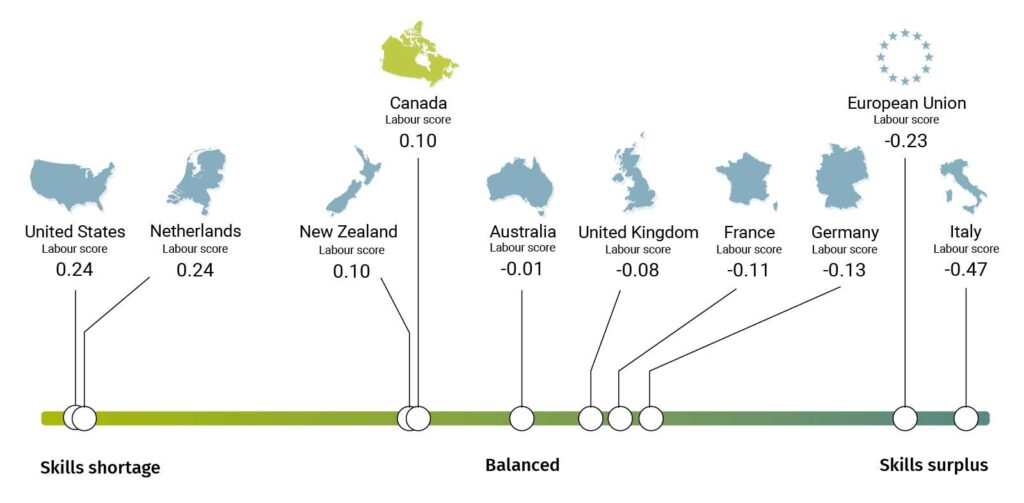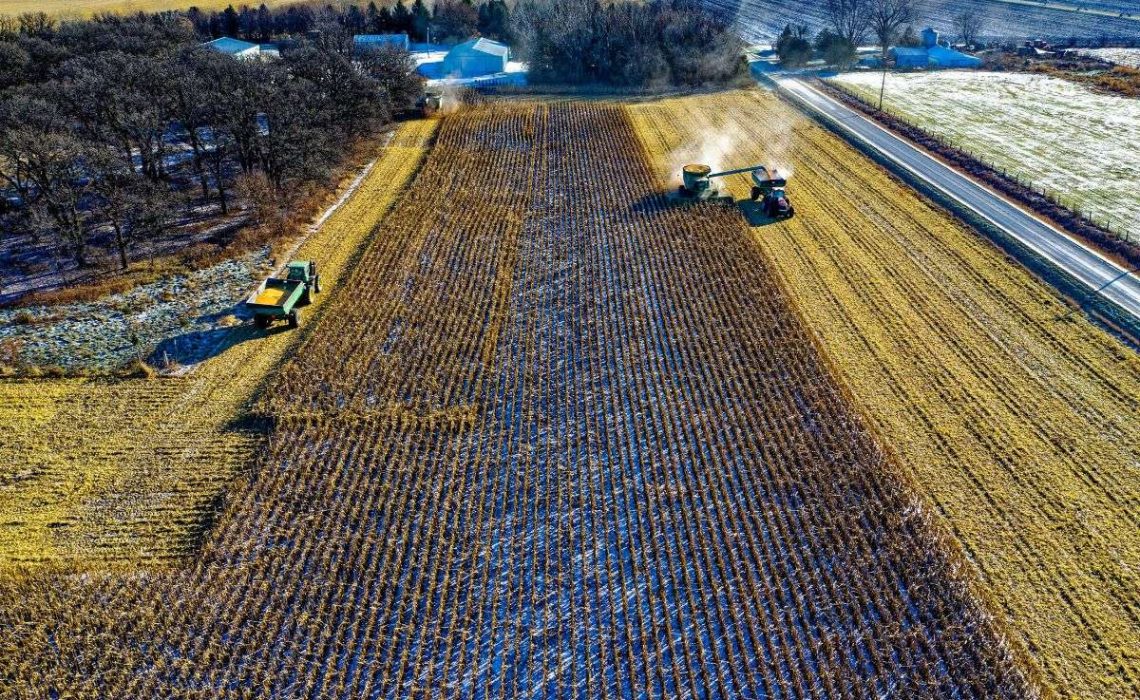“Canada’s shortage of agricultural workers is among the most severe,” says a recent report from the Royal Bank of Canada (RBC). About 40% of Canadian farm operators are predicted to leave the sector within the next ten years, which will result in a shortage of about 24,000 farm workers.
For a country that relies on agriculture as a significant contributor to and pillar of economic stability, food and nutritional security, as well as quality of life, this looming shortage presents a unique-though not impossible-challenge to solve.

Shortage of skilled agricultural workers in western countries. From Royal Bank of Canada
And it does need to be solved, since, according to the Government of Canada:
- Agricultural industries account for around 7% of Canada’s GDP
- Farms cover about 6.3% of Canada’s land area, or 62 million hectares
- 1 in 9 Canadians worked in agriculture in 2021
Bringing young people into agriculture
But how can young Canadians (or western farmers in general – the United States and Netherlands are in an even bigger pickle than Canada) be expected to enter into a field that, under the current agricultural models, is wrought with uncertainty? Can young people really be expected to take on the risk and cost that is often associated with farming?
Well, no, but also yes. Let us explain:
- Many of the current costs associated with industrial agriculture are due to reliance on expensive inputs like fertilizers. Many fertilizers can damage the health of the soil (and the farmer’s health), which creates a cyclical need for more fertilizers, according to soil scientist Nicole Masters.
- To mitigate these costs, many farmers have started moving to a more regenerative model of farming that is more reliant on information, knowledge, and ancestral wisdom about plant cycles vs. reliant on manufactured chemical inputs like fertilizer. According to many reports and research, these regenerative practices can yield higher, more valuable returns when implemented properly.
- Other complex social and environmental issues beyond farmers’ control contribute to uncertainty around entering farming as a career: complications with finding and retaining skilled labour, long-term contracts with retailers, and water scarcity are just a few. CBC
So, what’s the solution?
Well, it’s very simple (just kidding).
Many solutions have been proposed, including making it easier for skilled agricultural workers to live permanently in the places where farmers are most needed, and using high tech to make farming more efficient. And perhaps those solutions will work and/or be part of a holistic plan to solve the shortage of farmers in the west.
But, as the Canadian Broadcasting Corporation (CBC) pointed out, education needs to play an enormous role in teaching college-aged students how to have a successful career in agriculture, and how to work the land in a way that does not force farmers to rely on expensive gear and inputs while risking their own health and stability.
Lastly, it is important that the general public understand what farming looks like today so that farm workers will have the public respect and support they need to access helpful information, influence regulations, and generate abundant crops that are not just resilient but actually antifragile and regenerative.
Want to help? Spread the word about the value of farmers, about the possibilities of regenerative agriculture, and support local farmers when possible, especially those that are using or exploring regenerative practices.

